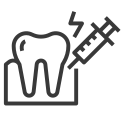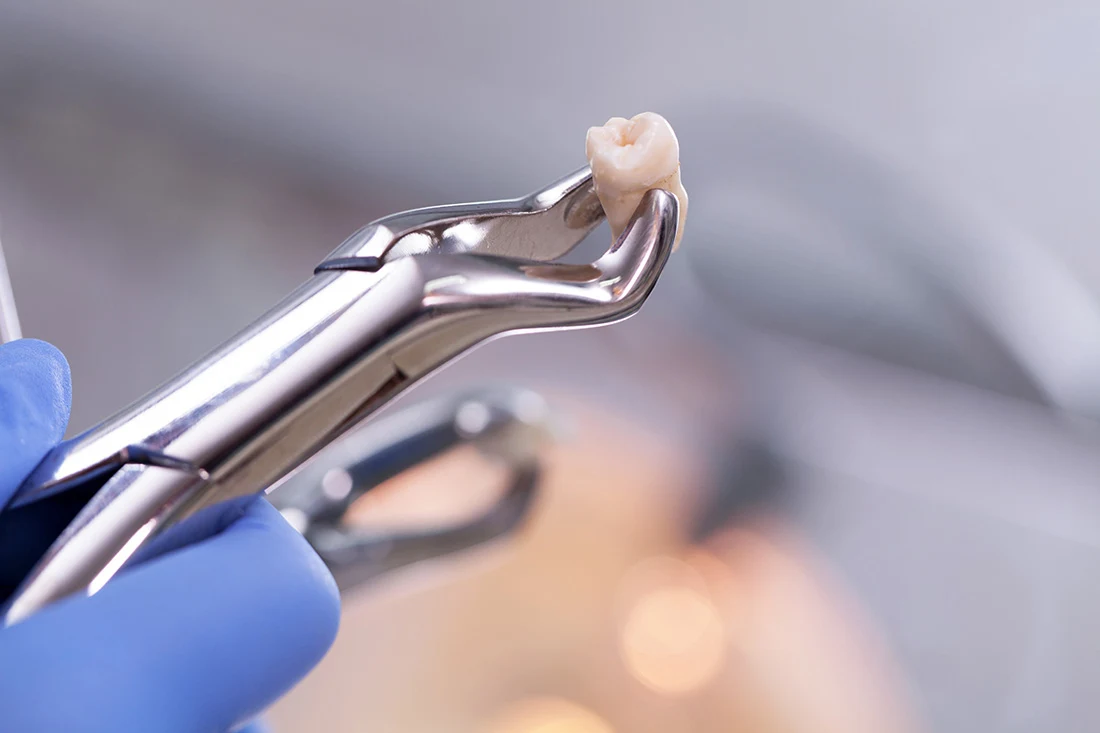Tooth Extractions
Tooth Extractions in Winchester, VA
Tooth extractions are a routine dental procedure performed when a tooth is too damaged or decayed to be saved, or when it’s causing overcrowding or alignment issues. At Apple Blossom Dentistry, your Winchester dentist offers this service with the utmost care and precision. Using the latest dental technology and techniques, Dr. Haynie ensures that the extraction process is as comfortable and pain-free as possible for the patient. It’s essential to note that while Apple Blossom Dentistry offers tooth extraction services, impacted wisdom teeth extractions are not provided.
- Book online your checkup
- Visit our practice
- Call (540) 667-3267
Why Should I Get Tooth Extractions?
Tooth extractions are often necessary to maintain overall oral health. A severely damaged or decayed tooth can cause discomfort and lead to more serious complications if left untreated. Additionally, extractions may be required for orthodontic reasons, such as making room for braces or preventing overcrowding of the teeth. Having your tooth extracted by a skilled professional like Dr. Talon Haynie ensures the procedure is done safely and effectively, reducing the risk of complications and promoting quicker healing.
Did you know…
-
 Tooth enamel is the hardest substance in the human body!
Tooth enamel is the hardest substance in the human body!
Ready to schedule your appointment?
The Benefits Of Tooth Extractions
Pain Relief
One of the primary benefits of tooth extraction is the relief from pain. A tooth that requires extraction is often causing discomfort due to decay, damage, or infection. Once the tooth is removed, the source of the pain is eliminated, providing immediate relief to the patient.Prevents Further Damage
Tooth extractions can prevent further damage to your oral health. A problematic tooth can lead to more serious issues, including the spread of infection and damage to neighboring teeth. By removing the problematic tooth, Dr. Haynie can help safeguard your overall oral health.Improves Oral Function
ooth extractions can also improve your oral function. A damaged or decayed tooth can make it difficult to chew or speak properly. Once the tooth is extracted, and the area has healed, you’ll be able to use your mouth more effectively, improving your quality of life.The Tooth Extraction Treatment Process

Examination and X-rays
The tooth extraction process begins with a thorough examination of your oral health. Dr. Haynie will take an X-ray of your mouth to assess the condition of the tooth and plan the extraction procedure accordingly.
Local Anesthesia
To ensure your comfort during the procedure, Dr. Haynie will administer local anesthesia to numb the area around the tooth that needs to be extracted. This step helps to ensure that the extraction process is as pain-free as possible.

